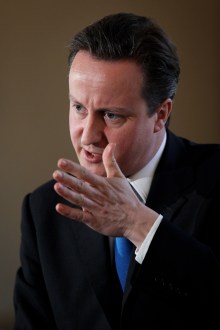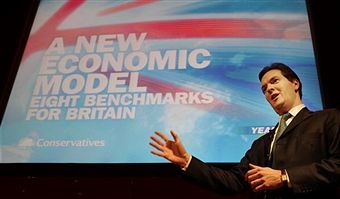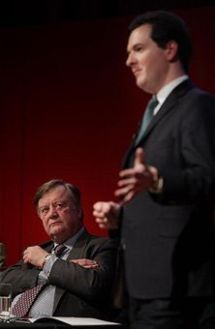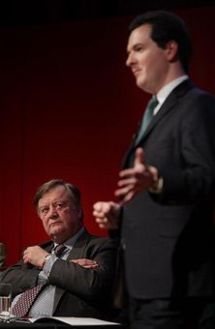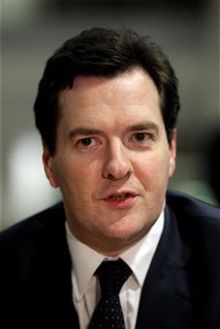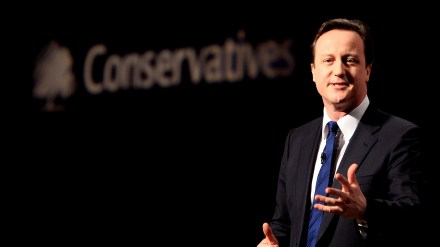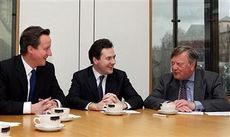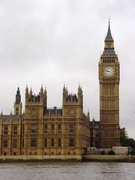Cameron defends his spending cuts – and suggests there won’t be more before the election
Want some more David Cameron? Well, the Tories are happy to oblige. After their party leader’s speech yesterday, he is interviewed in the FT and appeared on the Today programme earlier. The FT interview was certainly the more comfortable of the two. In it, Cameron stikes a confident note – saying that his party have “come a long way,” and that “people are gagging for change”. And he stresses that he thinks – and, apparently, Ken Clarke thinks – that George Osborne is “the right person” to be Chancellor. But Cameron had a tougher time in his Today Programme interview. It started well, with Today highlighting the supportive letter that
